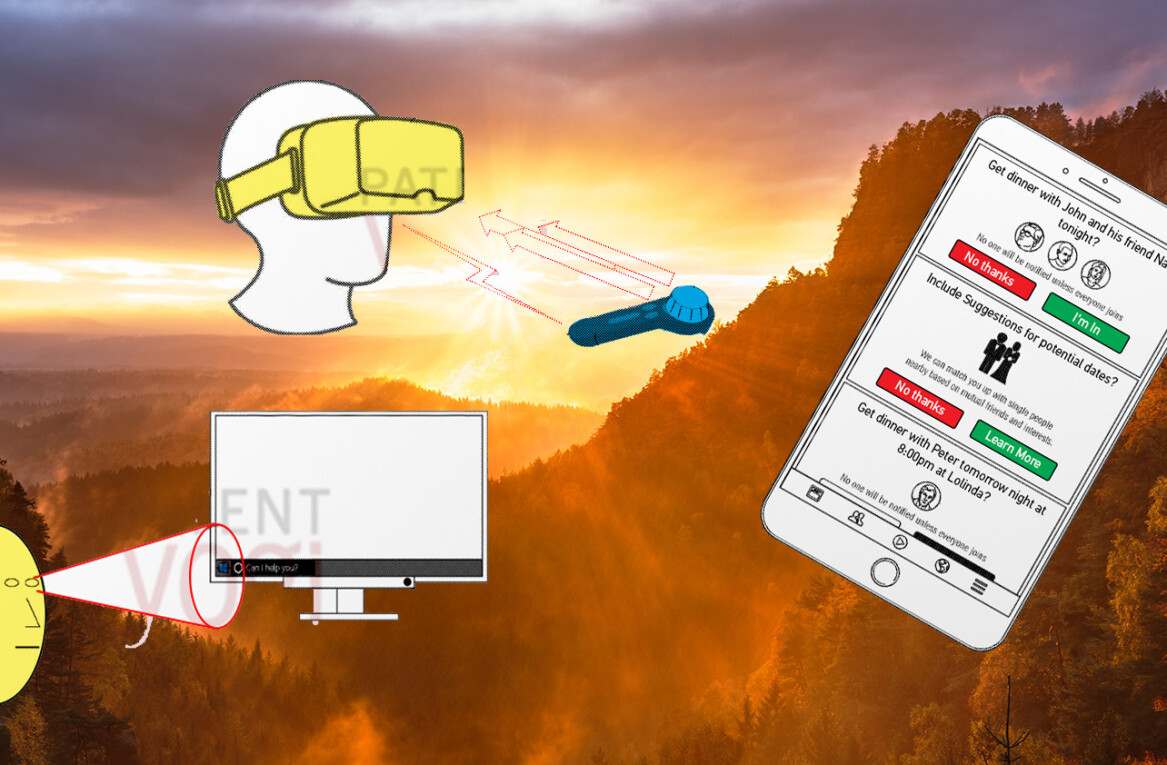
It’s hard to find a tech news site that doesn’t have at least one article in the headlines about how blockchain is going to change the world. The decentralized technology behind Bitcoin and other cryptocurrencies has been credited with the potential not only to disrupt our modern banking system, but to completely revolutionize industries like healthcare, investing, messaging, and even voting.

The way I see it, the blockchain has been completely overhyped. This is a marvelous technology, and one worth using for some important applications, but it simply doesn’t have the potential to change the world, nor can it be used universally across industries.
The problem with private keys
One of the biggest selling points of blockchain technology is its ability to keep things private and secure. Users rely on private keys to commit exchanges and verify their identity, which makes it incredibly difficult for those identities to be forged or stolen. But if consumers are left in charge of keeping track of those long, complicated keys themselves, and they need several unique keys (one for each of the blockchain-related services they use), it’s only a matter of time before they lose track of them or corrupt them. And since password-resetting isn’t an option here, consumers have the potential to lose access to their accounts much more easily.
And yes, you could use a single solution to consolidate these keys, with a traditional password that grants access to them—but at that point, the system becomes just as vulnerable to hackers as a traditional password-based system. The bottom line is that these private keys, while very secure, aren’t consumer friendly enough to be readily and securely deployed on a large scale.
The scalability problem

The blockchain also faces a well-documented scalability problem. The entire system depends on information entries in the form of blocks, with transaction records hypothetically dating back to the system’s existence. Each new block requires a community of existing participants to verify the transaction’s entry. This system works fine the way it is now, with 60 transactions per second with Bitcoin, but as the system gets bigger, its storage needs increase and the time it takes to process each transaction slows to a crawl. Considering Visa’s peak rate of 47,000 transactions per second, it’s apparent that the current generation of blockchain technology can’t be used efficiently for large-scale endeavors.
There are a number of proposed solutions to this problem, including sharding and straightforward block size increases, but most of them require a fundamental change to the blockchain before they can take effect.
Energy demands
Blockchain-based systems also use much more energy than most people realize. Some estimates suggest that Bitcoin, even in its current infancy, consumes more electricity annually than the entire country of Nigeria. Most current cryptocurrency systems force users to expend significant computational resources to guess a cryptographic signature and verify transactions; with thousands to millions of users, electricity consumption spikes. This makes the system unsustainable, since deploying a similar system at a scale that involves most or all consumers would put too much of a burden on our energy grid.
There are alternatives to consider, including a “proof of stake” verification process, and of course, a greater supply of renewable energy sources, but at this point, a new alternative to blockchain overall may make more sense.
New applications and talent shortages
People have been prophesizing about the revolutionary nature of blockchain for the past several years, but we’ve yet to see any dramatic changes to healthcare, voting, or other prospective applications. Part of the problem here is the massive talent shortage in blockchain development; blockchain specialists are hard to come by, they’re expensive, and coming up with an innovative blockchain solution that works takes a long time.
Most companies aren’t willing to make the investment, which means that even if blockchain did have the potential to transform our society, we don’t currently have the resources to make it happen.
But what about cryptocurrency?

You might argue that the blockchain is still useful for exchanging cryptocurrency. After all, there are still millions of people invested in Bitcoin who use it regularly, and it could legitimately represent the future of currency exchange.
The problem is, even crypto enthusiasts are starting to fade away. Bitcoin acceptance among major companies was never great, and it’s been steadily declining over the past couple of years, even as the volatility of the currency starts to subside. Consumers aren’t that into cryptocurrency either; just 8 percent of Americans are currently invested in cryptocurrency. It may be too early to say that the cryptocurrency craze is fading away entirely, but the momentum is certainly slowing down.
We should also consider the fact that exchanging money through the blockchain isn’t a perfect financial system, anyway. Transactions aren’t completely free—they’re just modestly cheaper than traditional transactions—and there’s no surefire way to verify the legitimacy of the goods you’re buying through the blockchain. Overall, the blockchain offers only marginal improvements over traditional financial transaction processing systems.
The role of the establishment
Another of the blockchain’s greatest advantages is also turning into one of its biggest obstacles for acceptance and development: its decentralization. The fact that the system can exist free from regulation or the control of financial institutions means that anyone can use it without being extorted or controlled by external forces.
But because of this, the most powerful organizations and institutions in the world (i.e., banks and governments) are disinterested, if not inherently opposed to allowing such a system to exist. Even if the blockchain doesn’t have the potential to dethrone the current banking system, modern banks aren’t going to take any chances by supporting its development.
Setting a precedent
I’m not saying that the blockchain isn’t a huge step forward—it most certainly is, and it has a lot to teach us about perfecting digital transactions. But it also isn’t the game-changing, world-revolutionizing “perfect” technology that proponents have made it out to be. Our best bet is to use the blockchain as a stepping stone—something to learn from, and something to fuel the invention of something even better. If we keep treating the blockchain as the be-all, end-all solution to all our problems, we’re not going to get anywhere.
Get the TNW newsletter
Get the most important tech news in your inbox each week.




